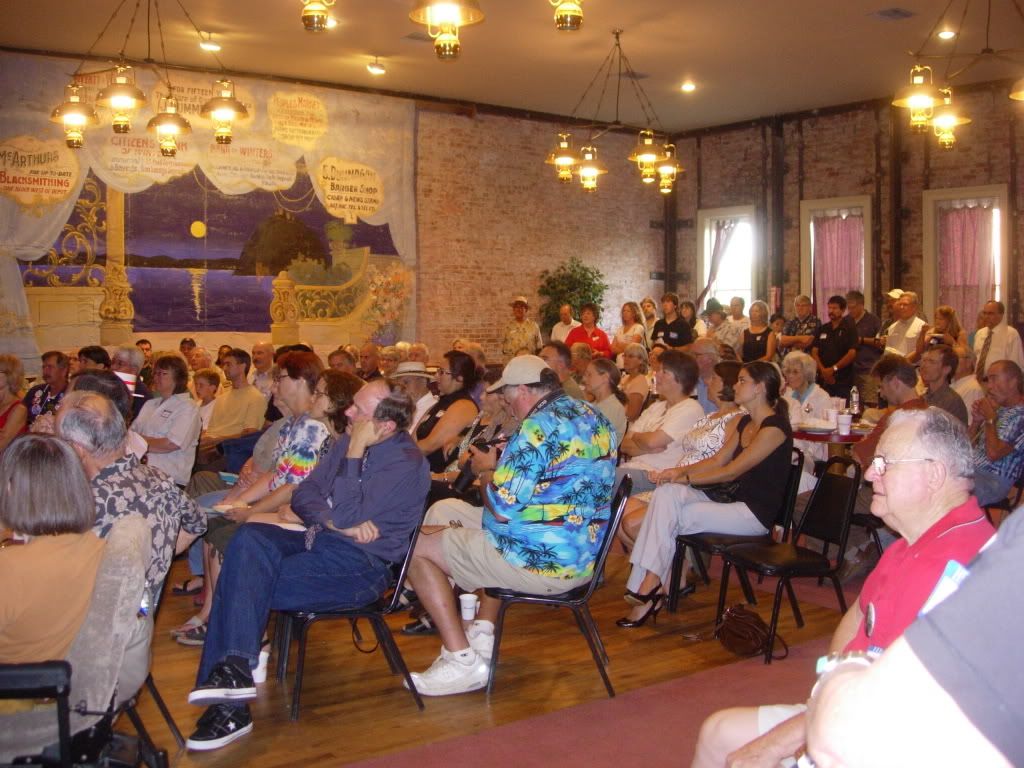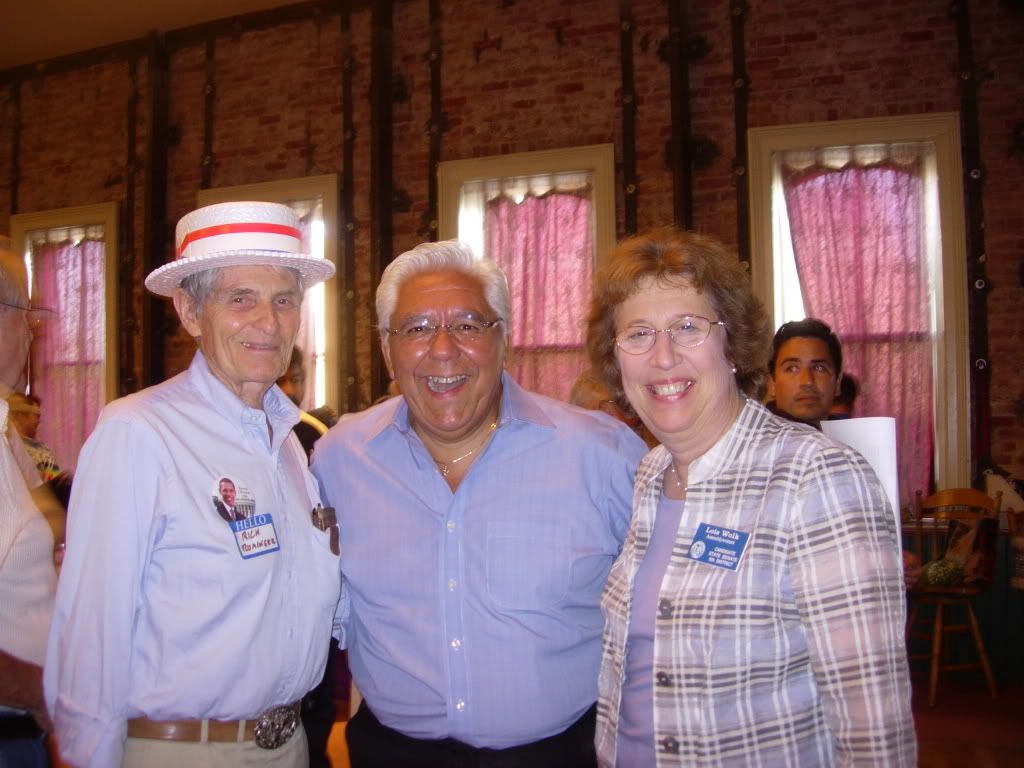Bond is about half as large as current package on November ballot, doesn’t include peripheral canals
by Brian Leubitz
Sen. Lois Wolk has been working for a long time on getting a revised water bond package on the ballot to replace the current $11.75bn bond slated for this November. The legislators and the governor are worried, justifiably, that voters will be scared off by that number when considering authorizing additional debt. However, given the current drought, a strong consensus has emerged that we must do something.
But, of course, there are always stumbling blocks. Like, say, the concept of peripheral tunnels to bring water around the Bay Delta. Sen. Wolk outlines how she sees the three pillars of a deal:
“It has to be a reasonable bond. It has to have the support of the governor. It must be tunnel neutral, and he is very clear about that, and I support that strongly,” said Sen. Lois Wolk (D-Davis), who represents the Delta. (Capital Public Radio / Ben Adler)
As you can hear in Ben Adler’s clip above, the governor is a lot bit gunshy of adding additional debt. In something of a reversal of roles, the Republican caucus is pushing for a higher funding level, arguing that $2B of storage funds are insufficient, favoring a $3B minimum.
But, if the Governor can gather the votes that he needs before next week’s deadline, his plan is likely to be the basis of the bond. While there may be a few changes here and there, one has to suspect that the time pressure will push Republicans toward accepting any deal that can get through the hurdles.
In a letter on his website, the Governor outlined his priorities for the package:
My $6 billion plan provides for water use efficiency and recycling, effective groundwater management and added storage. It invests in safe drinking water, particularly in disadvantaged communities and for watershed restoration and increased flows in some of our most important rivers and streams.
This water bond is tied to our comprehensive Water Action Plan that charts the way for California to become more resilient in the face of droughts and floods. It goes a long way to ensure clean drinking water, protect habitat and free up funding for local water projects.
See the flip for an outline of the spending priorities in the Governor’s bond package as well as his open letter on the subject..
To My Fellow Citizens of California:
Drought conditions in California grow more serious by the day.
Last month, the State Water Resources Control Board issued mandatory conservation measures to ensure that our water supply remains reliable. Whether you’re a rancher, farmer, business owner or an average Californian – it is crucial that you do all you can to conserve water.
State government, of course, has a major role in how we manage and conserve this fundamental resource. In March, I signed legislation to provide over $680 million for drought relief efforts, including money for housing and food for workers directly affected by the drought, bond funds for local projects to capture and manage water more efficiently and funding for emergency drinking water supplies. The recently enacted state budget contains specific funding to lessen the impacts of drought on fish and wildlife across the state.
But the drought shows no sign of letting up, so we must do more.
Five years ago, state legislators and the Governor put a pork-laden water bond on the ballot – with a price tag beyond what’s reasonable or affordable. The cost to taxpayers would be enormous – $750 million a year for 30 years – and would come at the expense of funding for schools, health care and public safety. This is on top of the nearly $8 billion a year the state already spends on bond debt service.
Since being elected governor, I’ve worked with the Legislature to reduce the state’s fiscal liabilities. Together, we’ve made steady progress paying down debt and enacting responsible, balanced budgets and it is no time to turn back now. Therefore, I’m proposing a no-frills, no-pork water bond that invests in the MOST CRITICAL PROJECTS without breaking the bank.
My $6 billion plan provides for water use efficiency and recycling, effective groundwater management and added storage. It invests in safe drinking water, particularly in disadvantaged communities and for watershed restoration and increased flows in some of our most important rivers and streams.
This water bond is tied to our comprehensive Water Action Plan that charts the way for California to become more resilient in the face of droughts and floods. It goes a long way to ensure clean drinking water, protect habitat and free up funding for local water projects.
Water is central to our lives, our wildlife and our food supply. Our economy depends on it. We must act now so that we can continue to manage as good stewards of this vital resource for generations to come. But we can and must do so without returning California to the days of overwhelming deficit and debt.
Respectfully,
Jerry Brown
For more on how you can do your part to conserve water, please visit www.saveourwater.com
Water Action Plan Financing Act of 2014 – $6 Billion Total
Regional Water Reliability – $750M
Integrated regional water management (with minimum for direct expenditure for
disadvantaged communities) $450M.
Stormwater Capture $200M.
Water conservation $100M.
Safe Drinking Water – $400M
Provide clean, safe and reliable drinking water to all Californians. With minimum to
leverage federal funds for safe drinking water and clean water programs and for
disadvantaged communities.
Small Community Program $200M.
Public Infrastructure $200M.
Water Recycling – $450M
Statewide water recycling projects and activities.
Groundwater Sustainability- $450M
Prevent and reduce groundwater contaminants.
Provide sustainable groundwater management support (technical assistance and planning
grants for locals).
Watershed Protection, Watershed Ecosystem Restoration, State Settlements – $1.175B
For statewide water-related habitat, flows and water quality in watersheds ($700M) and
for state settlement obligations including Central Valley Project Improvement Act
($475M).
Storage – $2B
Continuous appropriation for water storage projects.
Sacramento-San Joaquin Delta – $475M
For Delta levee subvention programs and delta flood protection projects ($300M) and
ecosystem restoration and science related to the Delta Plan and Delta Reform Act
($175M).
Statewide Flood Management – $300M
Statewide flood management projects and activities.
General Provisions
Funding eligibility requires urban or agricultural water management plans and
compliance with 2009 Water Conservation Act.
Bay Delta Conservation Plan neutral.
Protects existing water rights and reaffirms area of origin protections.




 Democrats in Yolo County are fired up and ready to go. They met last night at the historic Palms Playhouse in Winters for a rally sponsored by the Western Yolo County Democratic Club.
Democrats in Yolo County are fired up and ready to go. They met last night at the historic Palms Playhouse in Winters for a rally sponsored by the Western Yolo County Democratic Club.
